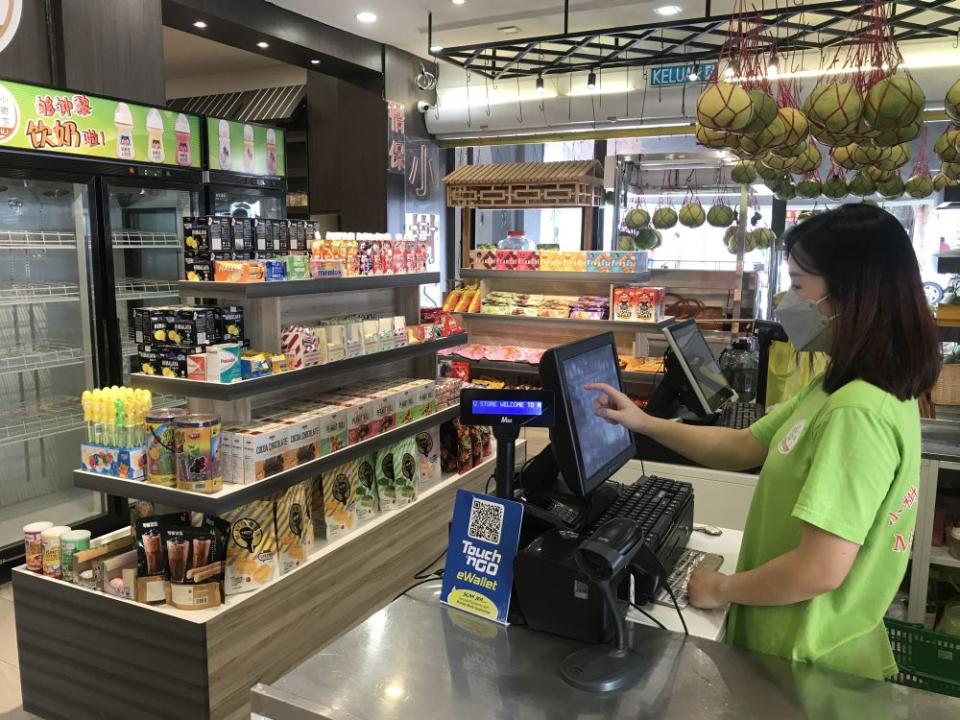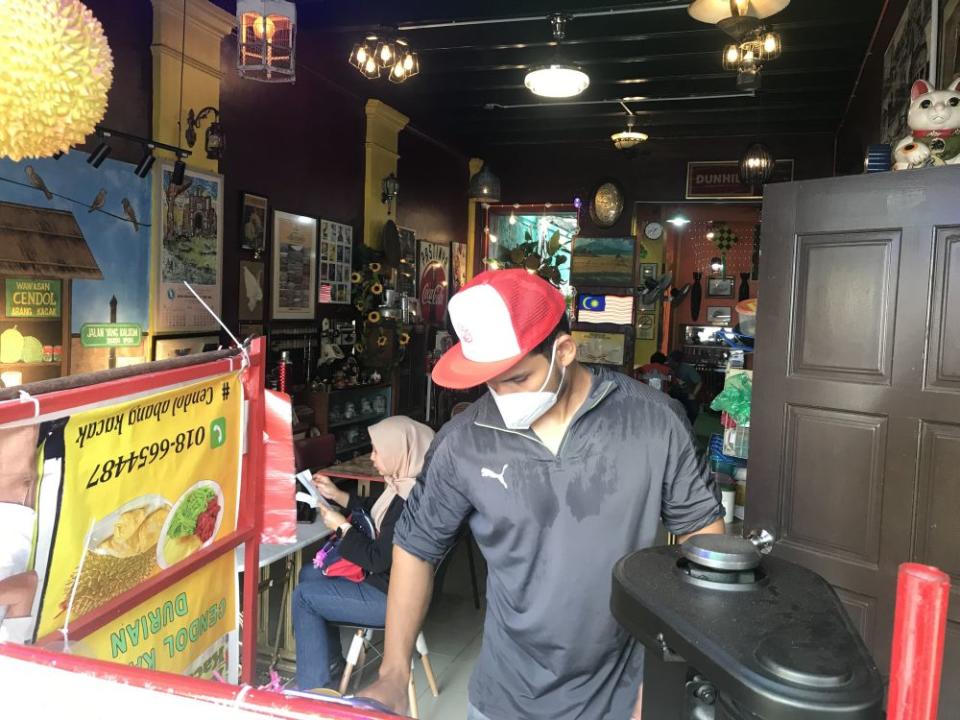'They're back!': Businesses in Ipoh come alive with visitors after interstate travel ban lifted

IPOH, Oct 17 — Businesses around Ipoh’s tourist spots are seeing signs of revival after the ban on interstate travel was lifted for those who have been fully vaccinated.
Even though the weekend crowd was not like what it used to be pre-pandemic, business owners interviewed by Malay Mail said there has been a definite uptick in customers the past few days.
They started noticing the arrival of tourists from Friday.
While most of visitors were from Kuala Lumpur and Penang, there were also tourists from Kedah, Johor, Kelantan and Terengganu who came down to Ipoh early as their weekend falls on Friday and Saturday.
Ding Feng Tau Fu Fa's owner, who only wanted to be named as Loo, said there has been a definite increase in customers this weekend.
“We hope to see more in the next few days as Tuesday is also a public holiday. We hope tourists will take this opportunity to spend more time in Ipoh,” said the 60-year-old.
Loo, who closed his business for about eight months due to the lockdown, hopes the business will pick up soon and things return to normal.
The shop, which is located along the famous tourist spot the Concubine Lane has been operating for the last eight years.
The shop is famous for its smooth tau fu fa and fresh soy milk and also signature flavour sea bird nest with gingko nuts.
Other shops — dessert houses, souvenir shops, fashion outlets and cafes — along Concubine Lane have also reopened after closing for months because of the pandemic.
Kong Heng Square which is adjacent to Concubine Lane is another popular spot for visitors who love taking pictures of its ruined walls, old orange bricks, trees and other historical buildings.
Another famous tourist spot on Jalan Bijih Timah here is the Ho Yan Hor Museum which has also started to receive visitors.
Museum manager Ng Chern Yuan said these visitors were mostly from neighbouring states such as Kuala Lumpur and Penang.
“There is a significant drop in the number of visitors after Covid-19. Before the pandemic, the daily average was about 100 visitors on weekdays and 200 to 300 visitors on the weekends.
“Now it’s just 10 visitors per day so it’s about a 90 per cent drop,” she said.
Ng said that the museum only resumed operations on October 1 after closing its doors since May 12 due to the lockdown.
“Previously, we could host about 40 visitors at one time, but now due to instructions from the government we are only allowed to have 30 per cent capacity, which is about 12 visitors at one time,” she explained.
Meanwhile, another tourist hotspot, Taman Jubilee, which is located at the city centre, has also seen an increase in tourist arrivals.
This is the best place to find local and traditional pastries, biscuits, candy, snacks, locally grown fruits and also famous "taugeh chicken" or bean sprout chicken restaurants.

Kedai Biskut Minisu Store, which is known for its salted peanut candy, has seen about a 70 per cent increase in customers on Saturday.
A shop employee, who only wanted to be called Chloe, said business has been good.
“We believe the sudden spike in sales is because of tourists from neighbouring states.
“There is a big difference in business today, even though it was a bit slow early this week,” she said.
Similarly, pastry shop Yee Thye Cake House and Confectionery located on Jalan Theatre here also said that tourists have increased in the area.
“It’s definitely a good sign especially for businesses like ours, more tourists mean more sales,” said shop worker Ng Yee Yan.
Meanwhile, Wawasan Cendol Abang Kacak owner Kelvin Raj said that the store has seen around a 30 per cent increase in customers after the lifting of interstate travel ban.
“Business is okay at the moment since dine-in is allowed and people are also allowed to travel. We hope to see more customers soon,” he said.

The cendol shop, which is popular among locals and tourists, also allows customers to order the city’s famous nasi kandar, also known as nasi ganja, as they’re just next to Kedai Kopi Yong Suan where the famous Nasi Kandar Ayam Merah stall is located.
Nasi kandar stall manager Mohamed Nihmaphullah Syed Mustaffa said that it has seen a sharp increase in business after interstate travel was allowed.
“Before this the sales was about 40 per cent, but since the borders opened the sales increased to about 70 per cent.
“If this continues, we believe our business can bounce back to what it was like in the old days prior to the pandemic,” he said.
He also added that they will be cooking more for all the dishes as they expect more customers in the next few days.
Mohamed Nihmaphullah also said that they have allowed customers who are fully vaccinated to dine-in as Covid-19 cases started to drop in the state.
Related Articles Covid-19: New Zealand reports record daily cases as Delta spreads Pfizer seeks green light for Covid-19 jab for children aged 5-11 in Canada Russian regions introduce QR codes for entry to public venues as Covid-19 cases hit record


